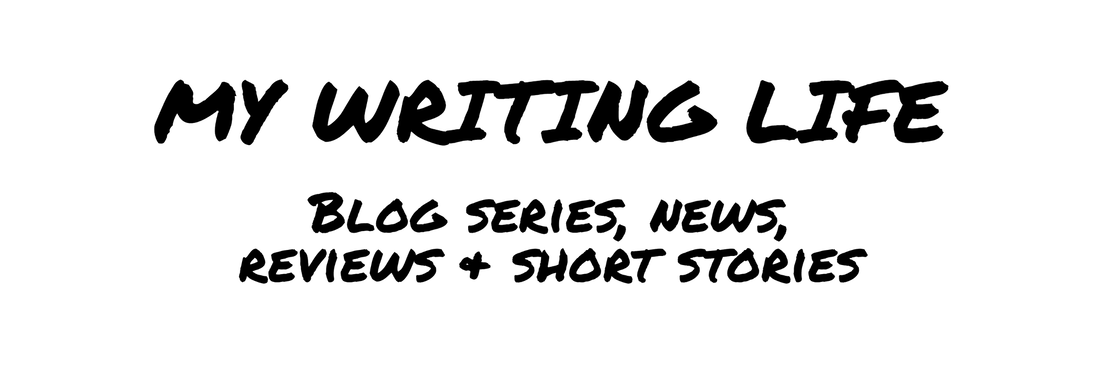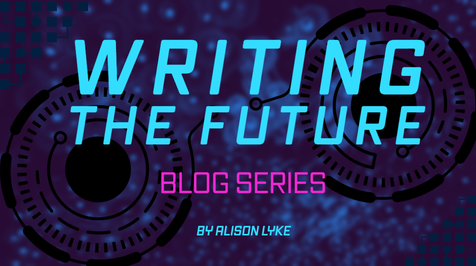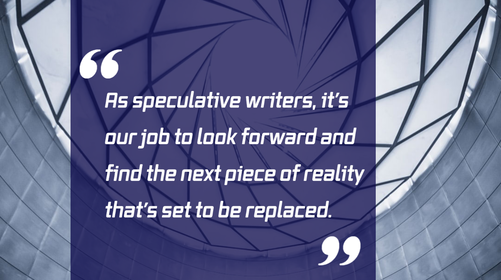|
This is the #1 post in blog series on writing speculative science fiction. It’s from a workshop I conducted at Writers & Books in February 2020. Speculative and Science Fiction Writers are the explorers of the future. Until we invent time machines, speculation is the closest we can get to peering into what the future holds for us. But how do we explore? Those writers from our past who got it right, who successfully speculated – how did they do it? I think about it like this: as we move through time, all of reality is replaced, piece by piece by inventions and ideas that were once speculation. Straw huts became brick huts, and then wooden houses. Medicine was based on magic, and the humors, and then slowly, piece by piece, science. And then better science. As speculative writers, it’s our job to look forward and find the next piece of reality that’s set to be replaced. It might happen slowly, like medicine, or there could be a catalyst that changes course, like travel restrictions in the wake of 9/11 – we’d never walk through an airport the same again. There’s no formula to help you figure which arm of society is going to be soon replaced by a cybernetic prosthesis. 100 years ago, who could have predicted that we’d outsource our socialization to electronic media? On the other hand, some authors can predict the future with astounding accuracy. In his 1968 novel Stand on Zanzibar, John Brunner predicted “wearable technology, Viagra, video calls, same-sex marriage, the legalization of cannabis, and the proliferation of mass shootings.” When asked how he was able to so clearly envision many of the tenets of the near future, Brunner cites his study of history and his intense focus on current events. Science Fiction superstar and inventor of the cyberpunk genre William Gibson (who we’ll discuss at length later) cited a similar preoccupation with the present as his inspiration. As we’ll see throughout our discussion today – speculation on the future is a veiled comment on the here and now. This series will focus on how study of the past and engagement with the present helps science fiction writers create vivid, believable futures. I hope you enjoy this journey to the future with me. Other Blogs in this Series:
0 Comments
Leave a Reply. |
Alison Lyke
Categories
All
Archives
November 2022
|



 RSS Feed
RSS Feed
